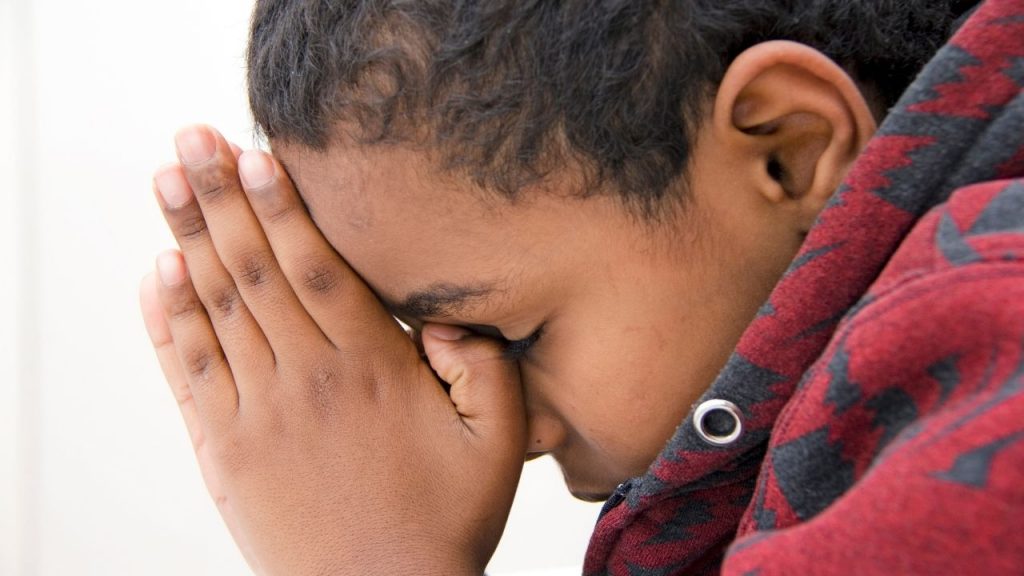3 ways to talk (and pray) with kids about war

How do you explain something to kids that you might be struggling to wrap your head around as well? Kids will naturally have questions about events that could be overheard from the news, or even topics of discussion in the classroom or playground.
While a child may just need basic, reassuring answers, a teenager may be ready to dive deeper, and ask more probing questions.
In any case, prayer is always a good way to broach the subject. When your children see or hear you praying for peace, unity, safety, and comfort it can help ease their concerns over the conflict and how it may resonate in any areas of their lives. Reliance on a higher power can also help set an atmosphere of peace, especially amid a difficult discussion.
Here are a few ways to start:
Speak the truth and keep the conversation/prayer age appropriate.
No matter the age, take inventory of your child or children’s emotional maturity, so you can best determine whether to even mention it or what a discussion or prayer should touch on. No need to burden or scare your children with more information than they may need or be able to process.
When your kids inquire about the situation, be honest. For children in school, try asking what they’ve already heard. From there, you’ll know where to lead the conversation and/or prayer.
Monitor the media around your child
In this day and age, protecting your children from imagery and headlines can be rather difficult. Even so, consider catching up on the news when they are away from home or asleep.
For kids who may have seen images of war in the news or may have interacted with related content on social media, they may already have quite a bit of information. You may need to do some research before you discuss the situation. Remember it’s okay if you don’t have all the answers. Simply address the situation with reassurance and calm. They may welcome prayer and even have their own specific prayer requests.
Consider following the discussion up with something light such as a fun dinner, board game, or walk.
Show them how to ‘look for the helpers’
“When I was a boy and would see scary things in the news, my mother would say to me, ‘Look for the helpers. You will always find people who are helping.’”
This quote often attributed to Fred Rogers from “Mister Rogers’ Neighborhood” is a good way to teach children how to look to the heroes or helpers involved. These are usually everyday people lending a hand, laying down their lives, and giving resources to those suffering from loss.
Take things a step further and teach your kids to be the helpers. Whether it’s saying their prayers, spreading kindness, raising funds, or holding drives, every little bit counts.



